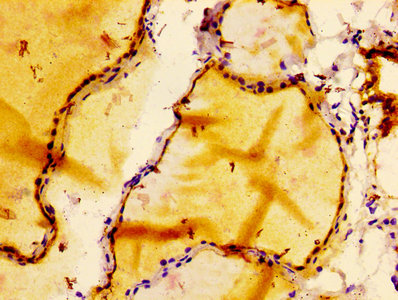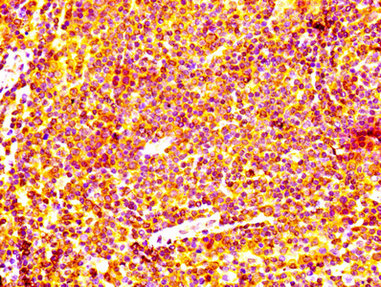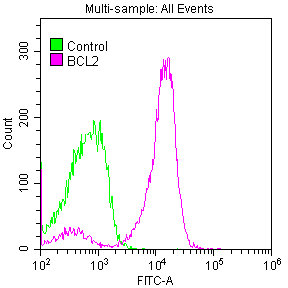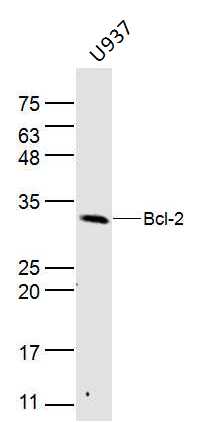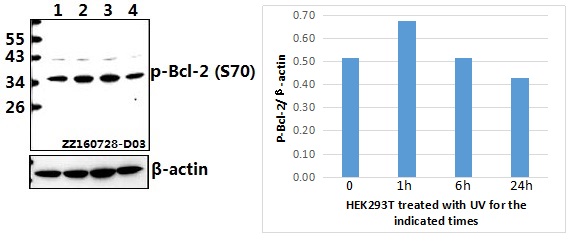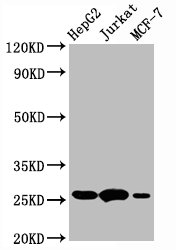
Western Blot Positive WB detected in:HepG2 whole cell lysate,Jurkat whole cell lysate,MCF-7 whole cell lysate All lanes:BCL2 antibody at 1microg/ml Secondary Goat polyclonal to rabbit IgG at 1/50000 dilution Predicted band size: 26 KDa Observed band size: 26 KDa
BCL2 Recombinant Monoclonal Antibody
CSB-RA002611A0HU
ApplicationsFlow Cytometry, Western Blot, ELISA, ImmunoHistoChemistry
Product group Antibodies
ReactivityHuman, Mouse, Rat
TargetBCL2
Overview
- SupplierCusabio
- Product NameBCL2 Recombinant Monoclonal Antibody
- Delivery Days Customer20
- ApplicationsFlow Cytometry, Western Blot, ELISA, ImmunoHistoChemistry
- CertificationResearch Use Only
- ClonalityMonoclonal
- Clone ID2C6
- ConjugateUnconjugated
- Gene ID596
- Target nameBCL2
- Target descriptionBCL2 apoptosis regulator
- Target synonymsBcl-2, PPP1R50, apoptosis regulator Bcl-2, B-cell CLL/lymphoma 2, protein phosphatase 1, regulatory subunit 50
- IsotypeIgG
- Protein IDP10415
- Protein NameApoptosis regulator Bcl-2
- Scientific DescriptionSuppresses apoptosis in a variety of cell systems including factor-dependent lymphohematopoietic and neural cells. Regulates cell death by controlling the mitochondrial membrane permeability. Appears to function in a feedback loop system with caspases. Inhibits caspase activity either by preventing the release of cytochrome c from the mitochondria and/or by binding to the apoptosis-activating factor (APAF-1). May attenuate inflammation by impairing NLRP1-inflammasome activation, hence CASP1 activation and IL1B release (PubMed:17418785).
- ReactivityHuman, Mouse, Rat
- Storage Instruction-20°C or -80°C
- UNSPSC41116161

